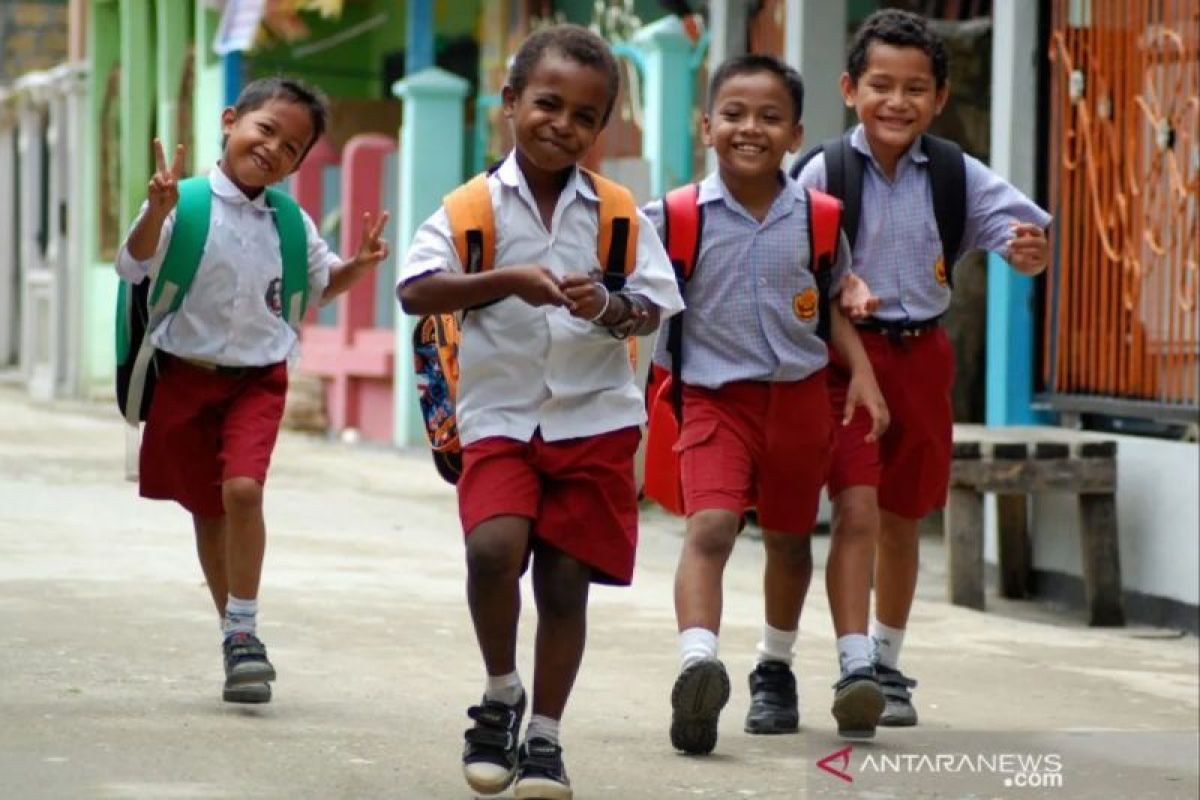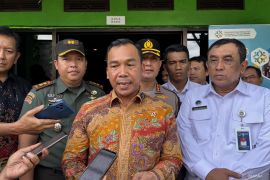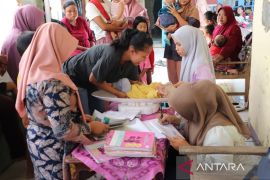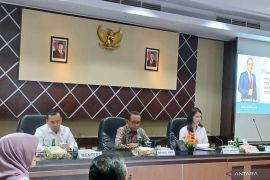Stunting in children is not only a matter of lower-than-average height for their age but could also hamper their ability to learn, cause mental retardation, and trigger several chronic diseases that cast a shadow over their future.
The National Population and Family Planning Agency (BKKBN) reported that some 400 thousand babies were born with stunting out of 1.6 million live births each year in Indonesia, or the equivalent of 24.4 percent in 2021.
Hence, Indonesian President Joko Widodo targets the acceleration of stunting reduction to 14 percent by 2024 through collaboration between stakeholders and the community.
The finding of stunting cases nowadays is an important capital that needs immediate intervention, so it will not hinder the achievements of the Golden Generation in 2045, in which the current group of children determines the demographic bonus at a productive age.
The government estimates that in the next 22 years, nearly 70 percent of Indonesia's population will be in the productive age bracket of 15-64 years, while the remaining 30 percent will enter the unproductive category with ages under 14 years and over 65 years.
If this demographic bonus is not utilized properly, it is bound to have negative impacts, especially social problems, such as poverty, poor health, unemployment, and high crime rates.
Related news: Health Minister presents Healthy Children Movement to address stunting
The Challenge
The latest Indonesian Nutritional Status Survey (SSGI) released by the Ministry of Health in early 2023 shows that stunting prevalence in Indonesia decreased, from 24.4 percent in 2021 to 21.6 percent in 2022.
Professor of the Faculty of Medicine, University of Indonesia (FKM-UI), Professor Tjandra Yoga Aditama stated that efforts to reduce stunting prevalence in Indonesia were considered a good achievement as compared to the rate of stunting prevalence decline in several countries in the world in the last decade, with an average of above one percent.
The target to reduce the stunting rate to 14 percent in less than a year actually comes with challenges in complex interventions starting from teenage years to pregnancy through the administration of blood-added tablets; the delivery phase through health screening; and ensuring balanced nutritional intake and animal protein in the initial years of a child's life.
Indonesian Health Minister, Budi Gunadi Sadikin, acknowledged that the most difficult problem in reducing the stunting rate is ensuring that toddlers consume animal protein, which, so far, has not been supervised by the central government.
Sometimes, the government’s intervention was also miscalculated. For instance, the use of the stunting budget that was allocated to build fences for community health service (puskesmas) to the number of coordinating meeting activities being conducted that surpassed the extent of on-field program execution.
Based on a report from Finance Minister Sri Mulyani Indrawati, only Rp34 trillion out of the total Rp77 trillion allocated for stunting management had been absorbed on target.
This is not to mention the issue of the alignment of the health budget in the midst of a political year, where attention and resources are directed into activities related to political contestation.
Professor Aditama then outlined several approaches that can be used to help stunting reduction, especially ahead of the political year 2024, starting from the political commitment of public policymakers to continue providing an important portion for health issues, in this case, stunting.
This should be followed by scientific and related programs related to stunting intervention. Politicians can also draw attention to the success in handling stunting as one of their campaign materials in a positive context since it shows real work for the benefit of the nation’s children.
Society and the mass media also need to continue to encourage public policymakers to carry out real activities in the field regarding stunting control in addition to direct activities by the community in the field.
Related news: Jokowi says government to ensure stunting reduction in all regions
Healthy Children Movement
Currently, the Health Ministry is building social collaboration through the "Healthy Children Movement" to overcome stunting in 50 districts and cities spread across five provinces of West Java, Central Java, East Java, Banten, and North Sumatra that contributed to 51 percent of the national stunting cases.
Jakarta Province was chosen as the starting point for the movement, as it is considered to have quality human resources and budget potential to reduce the stunting rate of 798,107 malnutrition-prone toddlers in the local area.
The program will involve all components of society, right from related ministries and agencies to the local government, private sector, and communities as well as families, in order to ensure that stunting interventions are not misguided.
The main goal of this movement is to prevent children from experiencing stunting due to a lack of balanced nutrition.
The Healthy Children Movement begins by weighing babies to measure whether they fall into groups at risk of malnutrition. Babies belonging in the group will need additional intake of animal protein, such as fish, eggs, and meat.
Meanwhile, collaboration with the private sector aims at gathering alternative funding for intervention programs through the role of foster parents.
The community’s participation is also deemed necessary to ensure balanced nutritional intake and animal protein foods being actually consumed by the children.
"Protected Children, Advanced Indonesia" is a theme chosen for this year’s HAN since it is related to health issues, especially stunting. It is hoped that several efforts pursued to achieve the Golden Generation in 2045 can be right on target.
Related news: Foster father program helps overcome stunting, extreme poverty: BKKBN
Translator: Andi Firdaus, Resinta S
Editor: Yuni Arisandy Sinaga
Copyright © ANTARA 2023












